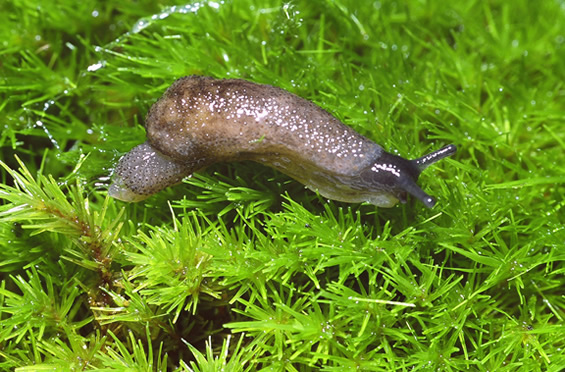A professor at the University of Alberta is hoping to discover a natural, biological way to control the slug population in North America but she needs your slug donations to do it.

“One of the most promising biological control agents against slugs are these nematode parasites,” Lien Luong said on Thursday. “Given my background with nematodes, I was very interested.”
In Europe, farmers, gardeners and others in agricultural fields use nematode parasites to combat slugs. This specific species of parasite suppresses the appetite of slugs and then kills them.
READ MORE: What you can do to prep your garden, according to a master gardener
However, it’s not known if this type of parasite — or something similar — exists in North America.
“I was contacted by a collaborator in the U.K. with an interest in exploring what types of slugs and parasites are present in North America and specifically, in Canada,” Luong said.
In order to research slugs and what natural enemies they might have here, Luong is asking Edmontonians to donate their spare slugs. Her team is starting with a goal of collecting 500 slugs to study.

Get breaking National news
READ MORE: How to start preparing your veggie garden: tips from a certified horticulturalist
“I want the slugs alive,” Luong said. “A lot of people will kill the slugs with salt or drown them in beer or something.”
She suggests a few ways people can collect them live.
“They can go out in the early mornings before the dew evaporates or they can go out at night after dusk and collect them with a spoon or a pair of gloves and put them into a margarine tub lined with paper towel and maybe a piece of sacrificial lettuce,” Luong said with a smile. “Put holes in the lid.
“Then they can email me and I can come pick them up.”
Donors can email Luong at lluong@ualberta.ca.
Ideally, the researchers would discover a naturally occurring parasite here that is just as effective for slug management.
“Currently, a lot of gardeners grow their own vegetables because they want to have organic produce,” Luong said. “The last thing people want to do is apply pesticides to their gardens. So a lot of gardeners will use other methods to remove slugs, with variable levels of success.”
READ MORE: How to grow your own food in a small, urban space
In Europe, the efficacy of the parasitic approach depends on climate, when it’s applied and the size of the slugs.
Luong said one useful outcome of this project would be the creation of a similar parasitic slug-destroying technique for other parts of the world.
“For North American gardeners, there’s no organic, natural alternative to slug suppression,” she said.
“It’s also for farmers and agricultural industries that may want to supplement their current management programs with a natural alternative.”
READ MORE: ‘You feel helpless’: Canada’s most profitable crop dealing with threatening disease
Since beginning this project, Luong has spoken with canola producers who have raised concerns about slugs possibly becoming a problem. Gardeners have also been vocal about their distaste for the petulant pests.
“Ever since I’ve put out the call for slugs, I’ve received dozens of emails from gardeners saying: ‘Oh my gosh, I have so many slugs I can give you, especially towards the end of summer.’ People are saying things like: ‘I’m at war with slugs!’ because it’s ravaging their vegetable gardens.”
- Moraine Road RV residents get temporary extension while city seeks long-term solution
- Calgary’s termination of Green Line adds extra frustration for expropriated Eau Claire residents
- Calgary police searching for sexual assault suspect after attack at swimming hole
- Home ownership feels out of reach for many in Calgary






Comments